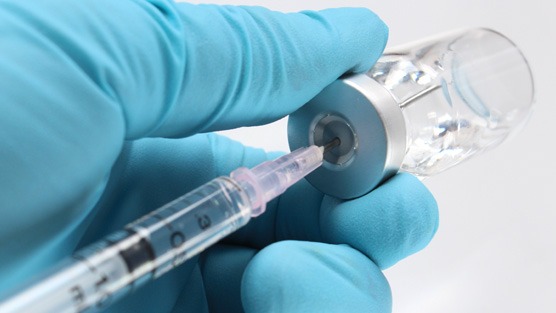Hormone Therapy for Cancer in Lebanon
Search and Compare the Best Clinics and Doctors at the Lowest Prices for Hormone Therapy for Cancer in Lebanon

Find the best clinics for Hormone Therapy for Cancer in Lebanon
No clinics available
Thailand offers the best prices Worldwide
Price: $ 15

- Home
- Lebanon
WHY US?
At Medijump, we're making medical easy. You can search, compare, discuss, and book your medical all in one place. We open the door to the best medical providers worldwide, saving you time and energy along the way, and it's all for FREE, no hidden fees, and no price markups guaranteed. So what are you waiting for?

Free

Best Price

Widest Selection

Risk-Free
What you need to know about Hormone Therapy for Cancer in Lebanon

Hormone therapy (also known as hormonal therapy, hormone treatment, or endocrine therapy) is a cancer treatment that uses medicine to lower or block the number of hormones in the body to stop or slow the growth of cancer. The aim of the procedure is to treat cancer and ease cancer symptoms. The procedure is mainly used to treat breast cancer, ovarian cancer, womb cancer, and prostate cancer that use hormones to grow and is usually used along with other cancer treatments.
What does a Hormone Therapy for Cancer Procedure Involve?
Hormone therapy involves taking medication that prevents cancer cells from getting the hormones they need in order to grow, which may be given orally (in pills that you swallow) or injected into a muscle in your hip, thigh, arm, leg, or belly. Some frequently used hormone therapy drugs are abiraterone, anastrozole, exemestane, fulvestrant, letrozole, leuprolide, and tamoxifen. In some cases, your doctor may also remove the gland responsible for hormone production with surgery.
How Long Should I Stay in Lebanon for a Hormone Therapy for Cancer Procedure?
Your length of stay depends on how many cycles are needed for your specific case. During your hormone therapy, you will need to meet your oncologist regularly for follow-up visits to see how your body is responding to the medications.
What's the Recovery Time for Hormone Therapy for Cancer Procedures in Lebanon?
You may be able to resume your normal activities and work the next day after you receive the hormone medications or when you do not feel any symptoms that interfere with your ability to perform your daily activities. If you undergo surgery to remove the gland responsible for hormone production, you may need to take 4 weeks off work and avoid any strenuous activities, such as intense exercise, for 6 to 8 weeks.
What sort of Aftercare is Required for Hormone Therapy for Cancer Procedures in Lebanon?
Your doctor will give you aftercare instructions, which involve diet, exercise, and restrictions. You will need to attend regular follow-up checkups after your hormone therapy is complete to discuss ways of reducing and treating side effects as well as to watch for cancer recurrence.
What's the Success Rate of Hormone Therapy for Cancer Procedures in Lebanon?
Hormone therapy has been shown to reduce the risk of cancer recurrence if performed along with other cancer treatments. It is also effective way to put cancer patients in remission, however, the treatment has some side effect and risks, such as hot flashes, fatigue, nausea, joint or muscle pain, blood clots, cataracts, stroke, heart disease, osteoporosis, erectile dysfunction (in men), as well as vaginal irritation, vaginal discharge, and vaginal dryness (in women).
Are there Alternatives to Hormone Therapy for Cancer Procedures in Lebanon?
Other cancer treatments, such as surgery, immunotherapy, targeted drug therapy, and chemotherapy can be your alternative options. Discuss with your doctor the best choice for your specific condition.
What Should You Expect Before and After the Procedure
Cancer can prevent you from enjoying life and cause painful symptoms, and it can be life-threatening. After successful hormone therapy, you should be able to enjoy the things you love, your symptoms are relieved, and your life may be prolonged. Many patients are put in remission after treatment, meaning no cancer cells are found in their bodies.
Whilst the information presented here has been accurately sourced and verified by a medical professional for its accuracy, it is still advised to consult with your doctor before pursuing a medical treatment at one of the listed medical providers
No Time?
Tell us what you're looking for and we'll reachout to the top clinics all at once
Enquire Now

Popular Procedures in Lebanon
Prices Start From $714

Prices Start From $2,487

Prices Start From $95

Prices Start From $2,487

Recommended Medical Centers in Lebanon for procedures similar to Hormone Therapy for Cancer

- Interpreter services
- Translation service
- Religious facilities
- Medical records transfer
- Medical travel insurance
- Health insurance coordination
- TV in the room
- Safe in the room
- Phone in the room
- Private rooms for patients available

- Interpreter services
- Translation service
- Religious facilities
- Medical records transfer
- Medical travel insurance
- Health insurance coordination
- TV in the room
- Safe in the room
- Phone in the room
- Private rooms for patients available

- Interpreter services
- Translation service
- Religious facilities
- Medical records transfer
- Medical travel insurance
- Health insurance coordination
- TV in the room
- Safe in the room
- Phone in the room
- Private rooms for patients available

- Interpreter services
- Translation service
- Religious facilities
- Medical records transfer
- Medical travel insurance
- Health insurance coordination
- TV in the room
- Safe in the room
- Phone in the room
- Private rooms for patients available
Hormone Therapy for Cancer in and around Lebanon
Lebanon, a country on the eastern shore of the Mediterranean Sea, is one of the smallest sovereign states. The country boasts a fascinating mixture of the Middle East and the West, Christianity, and Islam, and tradition and modernity. It has everything from golden beaches and World Heritage Sites to energetic nightlife and delicious cuisine. Among other countries in the Middle East, Lebanon appears to be one of the most popular medical tourism destinations. Over 10% of the tourists visiting the country, particularly from neighboring countries, come to receive medical care. Many hospitals and clinics in the country are accredited to the ISO:9000 standard and offer world-class specialist services in spine treatment, orthopedics, organ transplant, and other complex surgeries, as well as advanced cancer treatments. Cosmetic and reconstructive surgery are also popular.
Popular Parts of Lebanon
Beirut, the capital and largest city of Lebanon, is filled with historic landmarks and natural wonders. The most famous attractions in the city are the National Museum of Beirut, the Corniche and Pigeon Rocks, Sursock Museum, and Mohammed Al Amin Mosque. Many people also come to Lebanon to visit the port town of Sidon. Once a rich and thriving Phoenician city, it is dotted with historical monuments and ancient remnants, particularly in its Old City. Other popular cities include Tripoly, Baalbek, Byblos, and Tyre.
Weather and Climate in Lebanon
Lebanon has four seasons: winter (December to March), spring (April to May), summer (June to September), and autumn (October to November). Winter is the rainy season with high precipitation levels and cool temperatures. It is snowy in the mountains, but in some places, such as Beirut, it just rains during this season. Summer is hot, sunny, and dry, and can get very humid in cities located close to the sea. In the summer, the average temperatures are around 28°C to 30°C. Spring and autumn are both warm and pleasant.
Getting around in Lebanon
The main international airport where visitors fly into and out of Lebanon is Beirut–Rafic Hariri International Airport, which is the only operational commercial airport in the country. It serves international flights to numerous major cities across Europe and the Middle East, including Moscow, Paris, London, and Dubai. Given the small size of the country, there are no internal flights. Intercity buses and minibus are available and have an extensive network, especially in coastal areas. The best way to get around the country is by hiring a car (with a driver) or by using intercity taxis.
Tourist Visas in Lebanon
All visitors need to obtain a visa to enter and stay in Lebanon unless they come from one of the seven visa-exempt countries (including Kuwait, Bahrain, Qatar, Saudi Arabia, Oman, the United Arab Emirates, and Jordan). Citizens of 81 countries, including all EU countries, Australia, China, Canada, and the United States, are eligible for a visa on arrival for a maximum stay of 30 days. A conditional visa on arrival is available for citizens of 15 countries, including Algeria, Libya, Iraq, and Yemen.
Additional Information
- Local Currency: Lebanese Pound (LBP) is the official currency in Lebanon. 1 USD is equivalent to around 1,507 LBP. US dollars and the euro is widely accepted as well.
- Money & Payments: ATMs are widely available in many places around Beirut and other large cities. Many ATMs dispense both US dollars and Lebanese pounds. Credit cards, particularly Visa and MasterCard, are accepted at most major establishments. Tipping can be expected, usually around 10% to 15% of the bill.
- Local Language: Arabic is the official language in Lebanon. English and French are widely spoken as well, and many Lebanese can speak at least two to three languages.
- Local Culture and Religion: Islam (around 60% of the population) and Christianity (around 34%) are the primary religions in Lebanon. About 5% of Lebanese practice the Druze faith, while other religions are practiced by the remaining 1% of the population.
- Public holidays: New Year’s Day, Christmas Day, Eid al-Fitr, Eid al-Adha, All Saints’ Day, Resistance and Liberation Day, as well as Independence Day are some of the more important holidays in Lebanon.
Popular Searches
- Plastic Surgery in Thailand
- Dental Implants in Thailand
- Hair Transplant in Thailand
- Breast Augmentation Thailand
- Gastric Sleeve in Thailand
- Gender Reassignment Surgery in Thailand
- Laser Hair Removal in Bangkok
- Botox in Bangkok
- Dermatology in Bangkok
- Breast Augmentation in Bangkok
- Coolsculpting in Bangkok
- Veneers in Turkey
- Hair Transplant in Turkey
- Rhinoplasty in Turkey
- Stem Cell Therapy in Mexico
- Rhinoplasty in Mexico
- Liposuction in Mexico
- Coolsculpting in Tijuana
- Rhinoplasty in Korea
- Scar Removal in Korea
- Gastric Sleeve in Turkey
- Bone Marrow Transplant in India
- Invisalign in Malaysia
- Plastic Surgery in the Dominican Republic
- Tummy Tuck in the Dominican Republic
- Plastic and Cosmetic Surgery in Poland
- Rhinoplasty in Poland
- Hair Implant in Poland
- Dental Implants in Poland
- IVF in Turkey